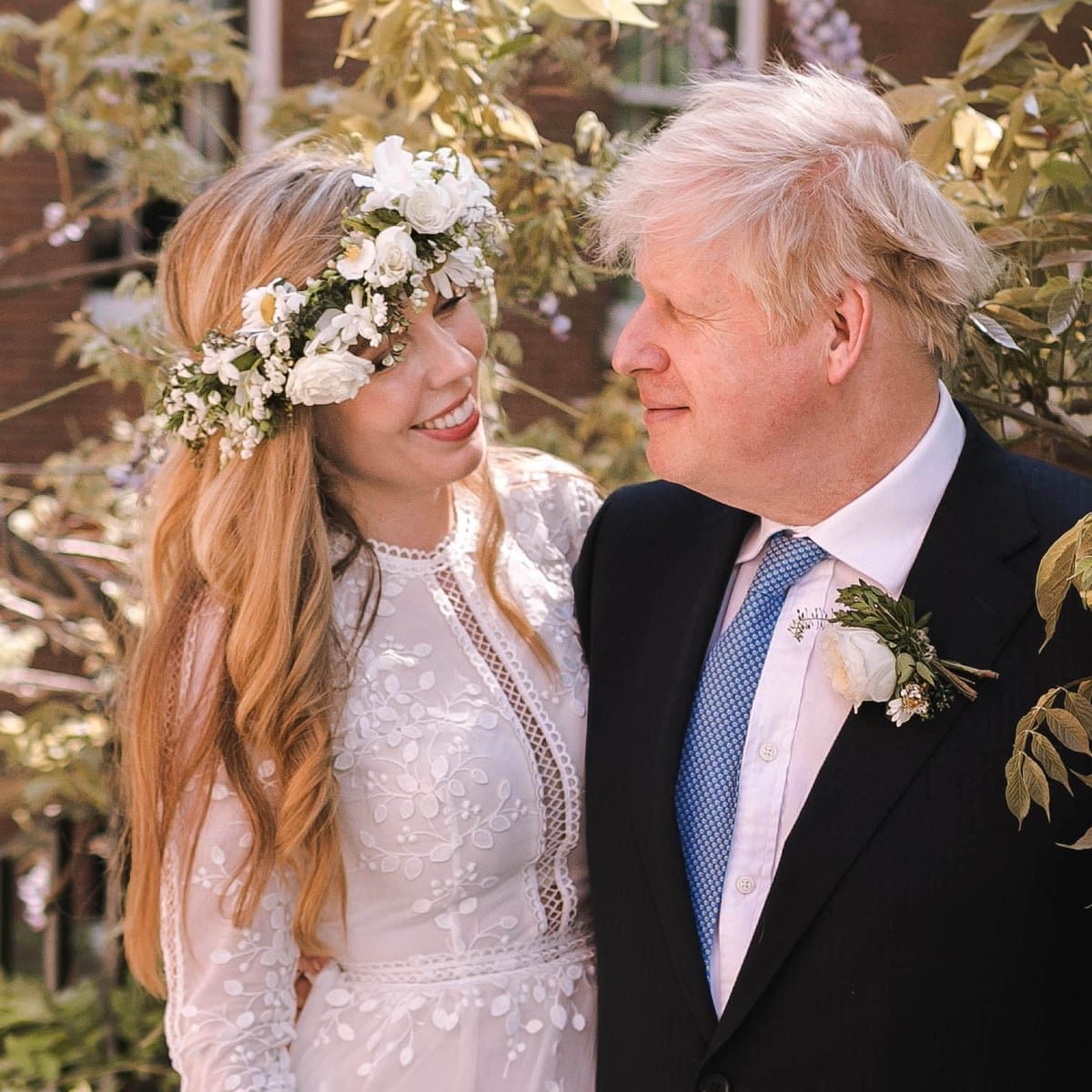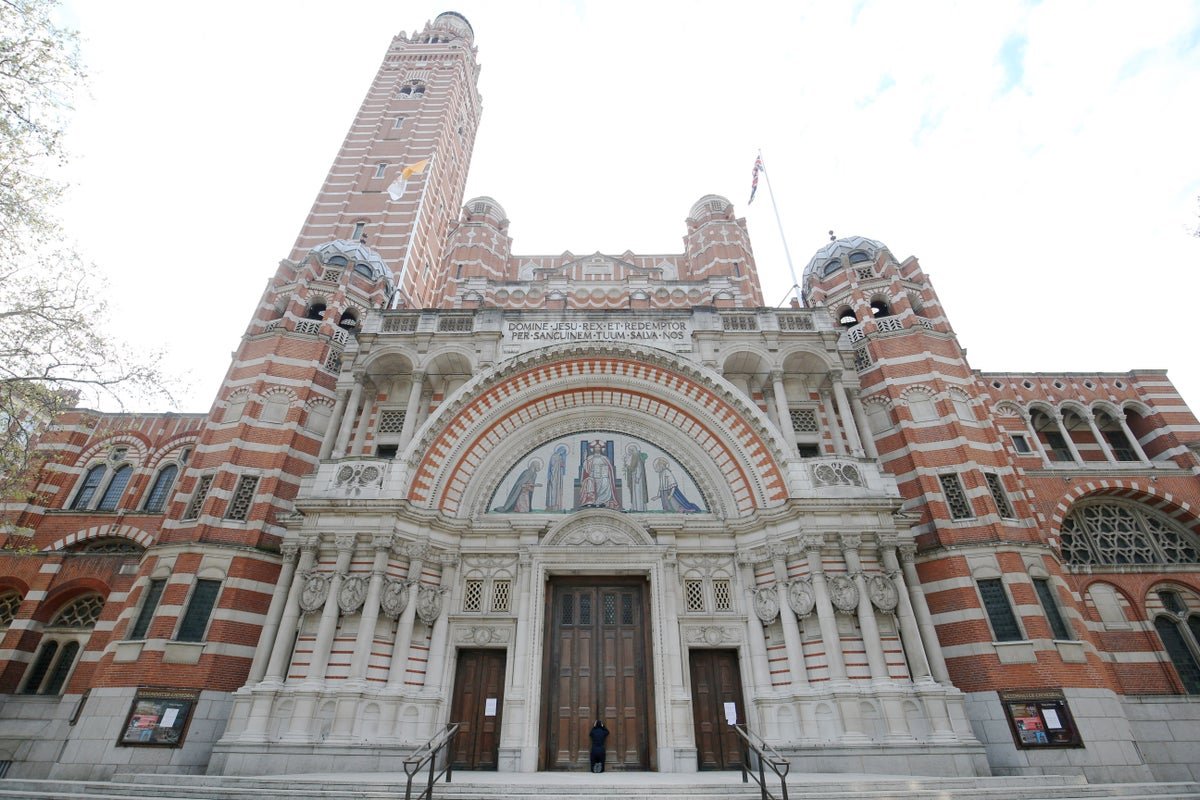Now let Boris embrace Catholic Social Teaching
Marriage in the cathedral
 Britain’s Prime Minister Boris Johnson has many things to apologise for, but marrying his fiancée in Westminster Cathedral last Saturday is not one of them. He and his wife Carrie should be warmly congratulated without reservation. According to the cathedral authorities, Mr Johnson was free to marry in civil law, having had two divorces and having met his obligations under them; and he was also free to marry in Catholic canon law – but on entirely different grounds. Both he and Carrie Symonds were baptised as Catholics, and she is “practising”. Neither of Johnson’s two previous marriages is recognised by the Catholic Church as neither was in accordance with canonical form, which Catholics are required to follow if their marriages are to be regarded by the Church as valid. That clearly implies that Johnson was still under the Catholic Church’s jurisdiction even though he had been a communicant member of the Church of England, having received Anglican Confirmation while at Eton. Johnson was certainly never excommunicated, nor can “doing what was expected of him” at Eton amount to the deliberate disavowal of his (Roman) Catholic identity. Catholicism is not something one can just resign from.
Britain’s Prime Minister Boris Johnson has many things to apologise for, but marrying his fiancée in Westminster Cathedral last Saturday is not one of them. He and his wife Carrie should be warmly congratulated without reservation. According to the cathedral authorities, Mr Johnson was free to marry in civil law, having had two divorces and having met his obligations under them; and he was also free to marry in Catholic canon law – but on entirely different grounds. Both he and Carrie Symonds were baptised as Catholics, and she is “practising”. Neither of Johnson’s two previous marriages is recognised by the Catholic Church as neither was in accordance with canonical form, which Catholics are required to follow if their marriages are to be regarded by the Church as valid. That clearly implies that Johnson was still under the Catholic Church’s jurisdiction even though he had been a communicant member of the Church of England, having received Anglican Confirmation while at Eton. Johnson was certainly never excommunicated, nor can “doing what was expected of him” at Eton amount to the deliberate disavowal of his (Roman) Catholic identity. Catholicism is not something one can just resign from.
Such arguments might have impeccable logic, but as the widespread reaction to the marriage shows, they sound to many like casuistry. But they enabled his pastor, former cathedral sub-administrator Fr Daniel Humphreys, to find a way through the Catholic marriage maze to a happy destination. He can only be commended for doing so. Any good priest would have done the same. As for the many critics of this event, some of whom make their feelings felt on The Tablet letters pages this week, they have to answer a simple question – what else could Boris Johnson and Carrie Symonds be expected to do, given the circumstances? The couple wished to marry in the Catholic Church; they had the right to do so; and they have a son, Wilfred, whom Fr Humphreys had baptised last year. Having had the amount of pre-marriage instruction the rules required, the Church gave them a green light.
But it has also to be admitted that this ducking and weaving through the rule book gives a bad impression. Johnson did not write the rules, and nor did Fr Humphreys, nor indeed did Cardinal Vincent Nichols, his archbishop. Yet it has been obvious for some time that a radical overhaul of the Church’s marriage policies and procedures is well overdue. They date from the Council of Trent in the sixteenth century. Among other things it was trying to stamp out clandestine marriages. The consequence of this obsolete inheritance is a great deal of heartache and suffering that continues to cause misery to many.
It is not beyond the Church’s competence to uphold its teaching that marriage, once validly entered into, is in principle indissoluble, while at the same time dealing humanely with those whose marriages break down, and who need, for the good of themselves and their families, a second chance. If the Church had done this long ago, the unseemly recriminations surrounding the Johnsons’ marriage could have been avoided. And what looks like the public repudiation of his former marriages, from which there are four children, need not have happened. This is no way to witness to indissolubility, and makes the Catholic Church look hypocritical.
 There are other questions arising from this which need addressing. If the Catholic Church regards Mr Johnson as a Catholic, does he regard himself that way? And does the law of the land? It appears so, in both cases. But the possibility of a Catholic prime minister has constitutional implications, not least for the establishment of the Church of England. Anglican bishops are appointed by the Crown on the recommendation of the prime minister of the day. Under a convention negotiated by Gordon Brown, the Church’s own choice is automatically forwarded to the Queen, and is equally automatically accepted. But the principle of state control is maintained.
There are other questions arising from this which need addressing. If the Catholic Church regards Mr Johnson as a Catholic, does he regard himself that way? And does the law of the land? It appears so, in both cases. But the possibility of a Catholic prime minister has constitutional implications, not least for the establishment of the Church of England. Anglican bishops are appointed by the Crown on the recommendation of the prime minister of the day. Under a convention negotiated by Gordon Brown, the Church’s own choice is automatically forwarded to the Queen, and is equally automatically accepted. But the principle of state control is maintained.
Second, does Johnson regard himself as bound by Catholic doctrine? Is he, for instance, aware that Catholic Social Teaching offers precisely the set of principles and values which have been missing from his political philosophy, which has concentrated in the past only on finding popular pragmatic solutions and on winning elections? His core policy of “levelling up” the poorer parts of the nation has been promoted as a way of winning working-class votes for the Tories, not as something social justice demands. Indeed, those parts of the Conservative Party who remain loyal to the Thatcherite belief in free markets and a small state would regard Catholic Social Teaching, indeed any notion of social justice, with deep suspicion.
There is a model for Johnson to follow if he is so inclined: the programme of reconstruction that Joe Biden is in the process of implementing in the United States. Biden makes no secret that Catholic Social Teaching is at the centre of his political philosophy. This could give Johnson excellent political cover. So what might a British version look like? This is one possible account of it: “There is a coherent and distinguished political tradition, pioneered by, but not unique to, Catholic intellectuals, which attempts to steer between the twin dangers of excessive individualism and oppressive statism. It has its roots in the philosophy of Aquinas, borrows from the work of Aristotle, and was revived for the industrial age by Pope Leo XIII with his encyclical Rerum Novarum in 1891.
“Catholic social thought places emphasis on the cultivation of virtue rather than the exercise of liberty or the accumulation of prosperity as mankind’s goal. In economic terms it thinks of the common good, with individuals given the chance to find dignity in the exercise of skill, as the guiding principle, rather than profits or abstract equality targets. And it is particularly concerned about the dignity of work and workers. It celebrates vocation, believes in worker participation in industrial decision-making, and sees firms as institutions which exist to serve society and imbue individual lives with purpose rather than just maximising shareholder value.”
The writer? Michael Gove, one of the highest ranking colleagues of Johnson and currently his Minister for the Cabinet Office (and an Anglican). If Johnson is looking for a new raison d’être for his politics, now that he is a happily married man again, this could be it.


 Votes : 0
Votes : 0









